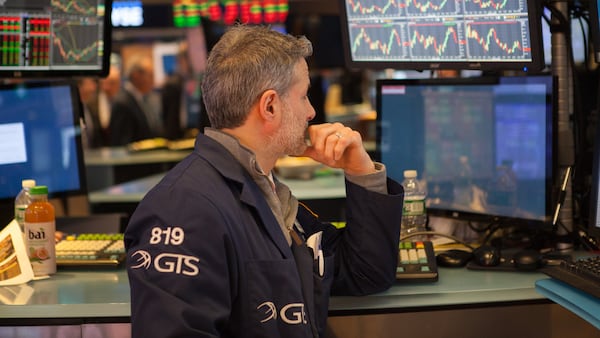- The halving cut the supply of new Bitcoin hitting the market.
- Despite high demand, the cryptocurrency has failed to rally since.
- The reason could be a $9.2 billion threat that’s loomed over the industry for years.
The Bitcoin halving has so far failed to produce any significant jumps in the cryptocurrency’s price.
Bitcoin rose about 12% on the back of the event, but has since fallen to trade around the $63,000 mark.
A potential reason is a $9.2 billion threat that has loomed over the industry since 2014: the return of over $9 billion to creditors of defunct crypto exchange Mt. Gox.
Concerns about the repayments to creditors, which appear set to begin in earnest soon, could “constrain liquidity as market players may avoid deploying new capital amid the uncertainty,” Coinbase head of research David Duong told DL News.
‘Will weigh on the market’
Mt. Gox collapsed in 2014 after it was drained by a string of hacks.
The exchange repeatedly postponed bankruptcy proceedings for over a decade, but its creditors could finally be about to get back the almost 142,000 Bitcoin they’re owed from the collapse.
The bad news? Almost $9.2 billion worth of the cryptocurrency could hit the market any time before October 31, the deadline for the Mt. Gox repayments.
That “will weigh on the market,” Brian Rudick, senior strategist at crypto trading firm GSR, told DL News.
To be sure, the decline has been pushed back several times in the past, and creditors could opt to hold the cryptocurrency rather than selling it on day one.
“It is fair to assume that anyone who had assets in Mt. Gox is an early adopter and more likely to lean towards the Bitcoin maxi end of the spectrum,” Brad Howell, managing director of crypto market maker Keyrock UK, told DL News.
He was referring to diehard Bitcoin enthusiasts.
He also noted that while $9.2 billion sounds like a large number, Bitcoin averaged $30 billion in daily trading volume in March.
“This should give you an idea of the volume required to move a market of this size,” he said.
Other factors affecting the price of Bitcoin include stubborn inflation, and tension in the Middle East.
Crypto market movers
- Bitcoin is down 1.8% in the last 24 hours, to $63,600.
- Ethereum slumped 1.8% as well in the same period, now at $3,130.
What we’re reading
- BlackRock Bitcoin ETF leapfrogs ‘cash vacuum cleaners’ with new inflow record — DL News
- Former Binance CEO Changpeng Zhao Pens Apology Letter To U.S. Judge — Milk Road
- Bitcoin Mining Decentralization ‘Not Great,’ Says Ordinals Creator — Unchained
- Tether To Freeze Wallets Linked To Sanctions Evasion In Venezuela’s Oil Industry — Milk Road
- EU will ban mixers and force crypto firms to surveil users in blow to DeFi anonymity — DL News
Update: This piece was corrected to attribute a quote from Coinbase to David Duong, head of research, instead of David Han, analyst.
Tom Carreras writes about markets for DL News. Got a tip? Reach out at tcarreras@dlnews.com








